HANSA. HANSA! HANSAAAAAA!!
Each week now, for the last three weeks and counting, someone puts out the call to our eight-person city gaming group.
“Can we get Hansa to the table?”
“Maybe you could bring Hansa just in case we finish _____ a little early?”
“Now that we’ve done base Hansa, let’s break out one of the other maps!”
Hansa Teutonica, designed by Andreas Steding (the designer behind Gugong and the recently-funded Kickstarter release Stroganov) is an older title, 2009 to be exact. But Pegasus Spiele released a “Big Box” version of Hansa Teutonica last year, which includes the base game plus two additional maps originally released as expansion maps in the five years after the release of the base game. (For the purposes of this review, we’ll drop “Big Box” and refer to this edition as only Hansa Teutonica.)
All of my gamer friends now know why Hansa Teutonica is still in BGG’s top 150. It just works.
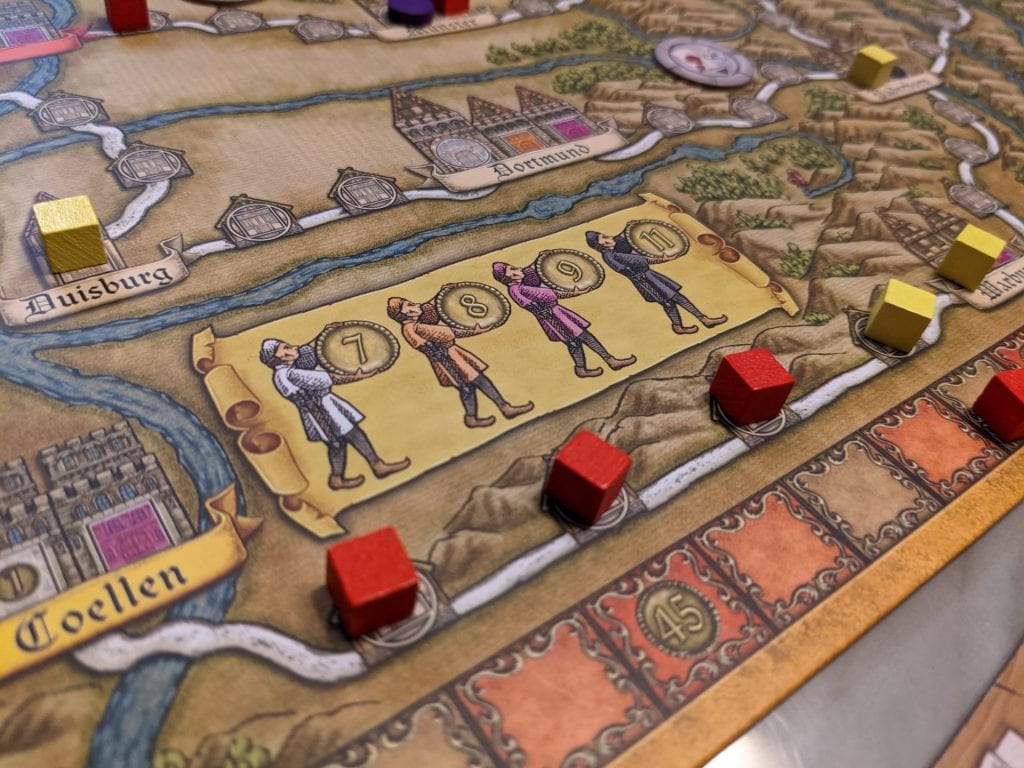
The Driest Euro in History
Let’s get this out of the way: you know that feeling you get when you open a new Vital Lacerda game from Eagle Gryphon Games, say Kanban EV or Vinhos Deluxe, and the art, rulebook, player boards and customized meeples are just amazing?
You aren’t going to have that feeling when you open Hansa Teutonica. In fact, even in the face of the obviously bland cover artwork (an upgrade over the original, which was also dry, like Canada Dry), I was somehow underwhelmed when I opened my box—even being aware that this was going to be maybe the driest of dry Euros in the history of dry Euros. The boards are fine, not very interesting representations of Germany or Brittania, the cubes are plain, the rulebook (which is effectively written and does the job) is pretty dry and boring as well.
But that “uh-oh” feeling didn’t last long. I dummy-hand all of my new games and played a three-player game of Hansa Teutonica against myself twice to learn the rules. And even while playing against myself, I knew that this was going to be a permanent addition to my collection.
That’s because Hansa Teutonica features gameplay so smooth, so quick, so interactive yet so not mean, that I would dare to say this might actually work with a “muggle”, one of my game group’s names for those new to the hobby of playing more advanced board games. (Thanks, JK Rowling!)
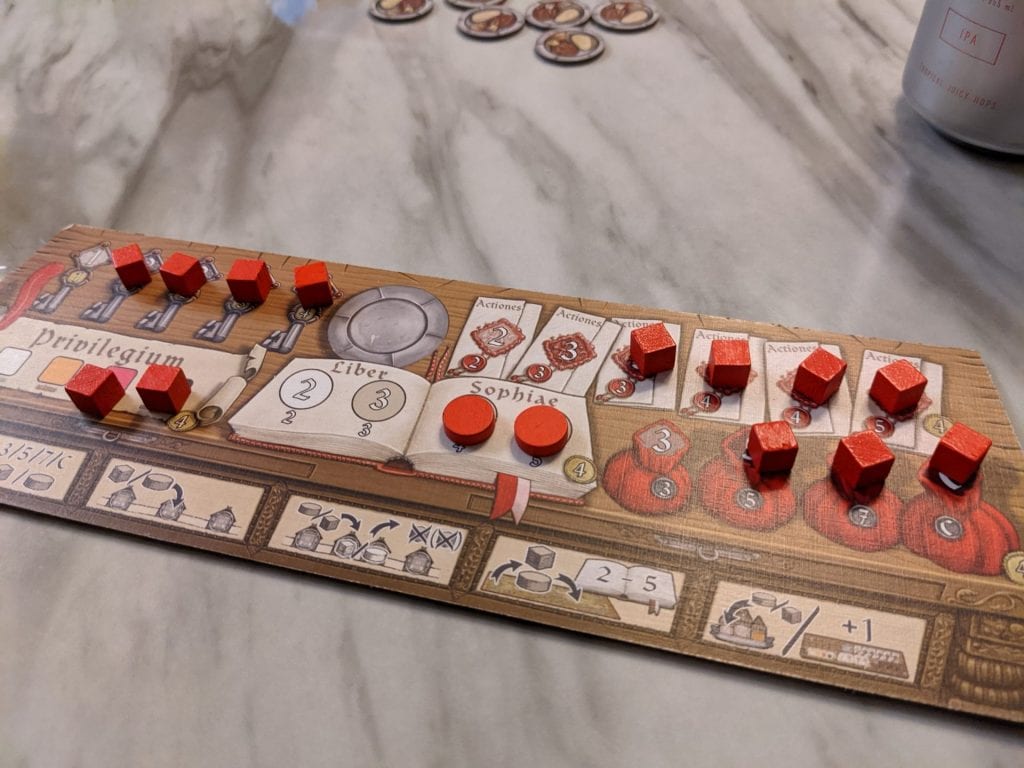
“I only needed six seconds. It’s your turn!”
In Hansa Teutonica, you are a collection of traders, working against other players’ trading guilds to score the most points by building trading posts and trade routes all over the German Hanseatic League (or Hansa Teutonica in Latin) in the olden times. How old? The instructions don’t say, but my sources—the internet—tell me that the German Hanseatic League loosely operated over a 400-year span starting in the 1100s.
But like all great Euros you won’t focus on the theme of this game for even a second. The base game board is a map of Germany during this time period, and there are open spaces known as connection points which link various cities (2-4 connection points each) all over the map, along a series of roads. You’ll take two actions per turn with your traders (small wooden cubes) and more limited merchants (discs), which begin as an even more limited pool of traders and a single merchant.
Players must choose one of these five actions, and you can repeat any action multiple times in a turn:
- Place one tradesman (traders and merchants are collectively known as tradesmen) on any free connection point on the board
- Displace a rival tradesman, paying one additional trader from your personal supply to do so. This allows the displaced rival to place the displaced tradesman plus one additional trader from the general stock (or two if a merchant was displaced) on an adjacent trade route
- Move two or more of your traders already on the game board to equal and open spaces anywhere else on the board, depending on the current level of your “Book of Knowledge” ability
- Collect three or more tradesmen from the “general stock” to be placed in your personal supply to use later, depending on the current level of your “Bank” ability
- Create a trade route, which is possible if you have a route filled only with your tradesmen. This is the only complex action in the game, and I use the term “complex” loosely. This could trigger additional cleanup: a) and b) are required, while c) through e) are optional:
- Once players have established trading posts, the “create a trade route” action could result in points for owner(s) of the trading post at either end of the route
- Players may acquire bonus markers, which are awesome and slightly ridiculous one-time-use abilities that break the game’s rules; these markers are acquired if there is one attached to the completed trade route
- You can take one of the tradesmen from the completed route to sit permanently in one of the two connecting trade route cities to earn future points, OR
- You can develop one of your five abilities, depending on whether the route was completed in a city with a yellow banner, OR
- You could earn end-game victory points if you build in the special merchant spaces (such as Coellen on the base map)
The first four of these five actions are so fast that a turn could be over in literally ten seconds. The fifth is also pretty quick, but in some cases, points will be scored when the route is created and you need to account for who just earned victory points.
The ending is so sudden!
The end of the game is a blast. When someone scores 20 or more points, or if ten cities completely fill up their trading post spaces, or if all of the bonus markers are snatched up by players, the game ends IMMEDIATELY. Not when everyone gets an equal number of turns, not even at the end of a player’s turn…IMMEDIATELY. Sometimes you won’t be quite sure when the game is going to be over, which can be amazing to watch.
Once this end-game trigger happens, points are tallied up. In addition to the prestige points scored during the game, you’ll also gain points for trading post ownership, points for your largest network multiplied by how far you have developed your “City Keys” ability, the total number of bonus markers collected, and if you have sent a merchant to the area of the map where you can place based on your “Privilege” ability (on the base game map, this is Coellen, but that changes on the expansion maps).
I have now played Hansa Teutonica five times. Each time, someone did something different to win. In my first game, the player who first built the East-West Connection (by placing trading posts in a contiguous set of locations that stretch from east to west on the game board) won the game; the East-West Connection scores seven points in-game for the person who completes this first. By sneakily building a trading post in each connected city in a straight line, he went from 13 points to 20, ending the game and having the largest network of controlled trading posts.
In another game on the Brittania map, the winner built trading posts in connected cities then later captured a bonus marker. This allowed him to place the next bonus marker on another route which had open space and it just so happened that this route also had his trading posts. So, he collected eight bonus markers this way plus two points every time he completed the route.
In a game completed just prior to writing this review, a player won by developing his City Keys ability to three, then building an expansive network away from the cities which were being fought over for ability development. This can lead to a ton of points—lots of points for having control of trading posts in multiple cities, then giving this network a massive multiplier bonus.
Multiple paths to victory? An understatement in Hansa Teutonica! And keeping players on edge is brilliant. Also amazing: the player interaction of Hansa Teutonica. Multiplayer solitaire, this is not.
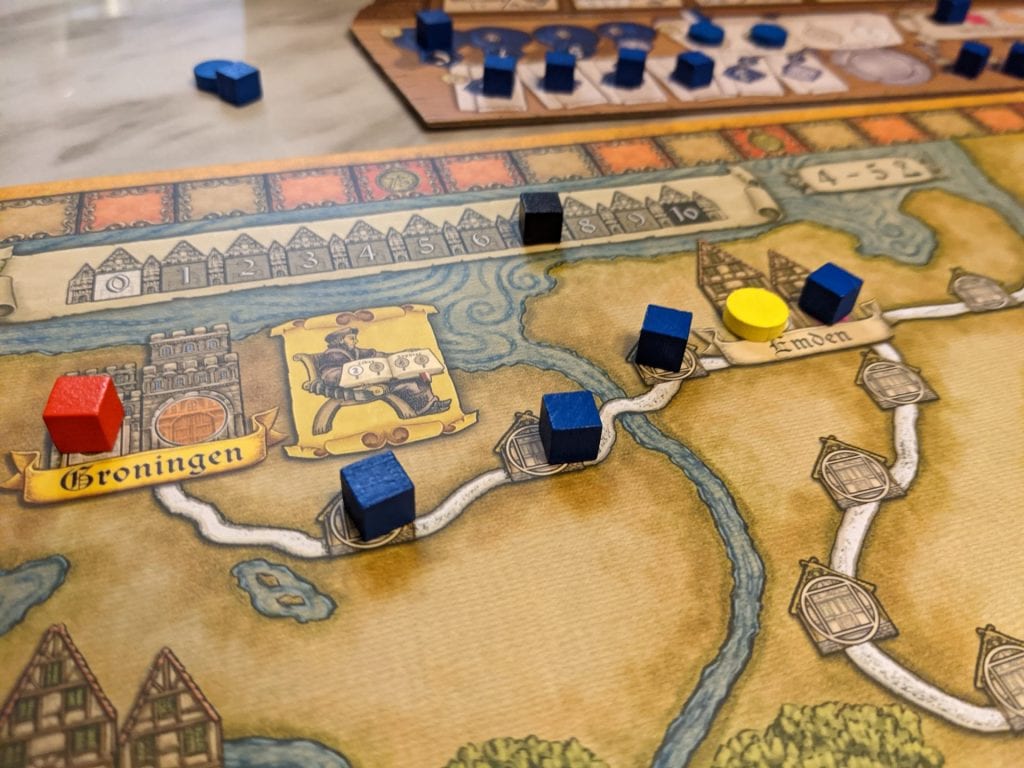
Interaction with other players? Yes please!!
I still remember the first time I played Roll for the Galaxy with friends. Great game. Not a word was spoken. I was playing the game with my friends, but we were all playing our own game. I recently had this same experience with a playthrough of Paladins of the West Kingdom. For 45 minutes, four adults basically played a game by themselves, but together and against each other, at the same table.
I was bored to death.
Hansa Teutonica doesn’t suffer from this problem, or at least this “problem” of solitaire, in my eyes. You are always looking at what others are doing, what moves they might be considering, or when they actually move pieces to another trade route. The theme is dry, so you’re coming into a game of Hansa Teutonica thinking, “this doesn’t look interesting on paper.” But then it is!
It’s the fun factor, the quick setup and the strategy that keeps us coming back. That, and the Big Box.

The value proposition
For an MSRP of $48, and with prices on the internet that allow for incredible discounts, there’s a lot of game in Hansa Teutonica. Not just the base game map, but two additional maps (Eastern German League and Brittania), to ensure a lifetime of replayability. Mission cards are also included, to steer you towards building in certain cities; “Emperor’s Favour”, another mini-expansion, can be added to provide more ways to score for those willing to gather bonus tokens to spend on better extras.
I grabbed a copy of Hansa Teutonica for only $35. I know that many in our industry prefer to not discuss price when it comes to enjoying the hobby. I am not in that camp; I aggressively budget for my addiction to games to ensure I can get as many great experiences as I can for my budget. (Kids are expensive, so anything leftover is precious!)
For that price, I have already gotten my money’s worth with Hansa Teutonica. But I’ve only begun to scratch the surface; in my five games I have played the base map three times, Eastern Hanseatic League once and Brittania once. Also, I’m still just learning how to really maximize turns in the game, or how to get better at placing many tradesmen on the map only to move them around to try and confuse opponents. And there are certain sections of the expansion maps, like the maritime routes on the Eastern Hanseatic League map, which I have been afraid to explore but will try out in future plays.
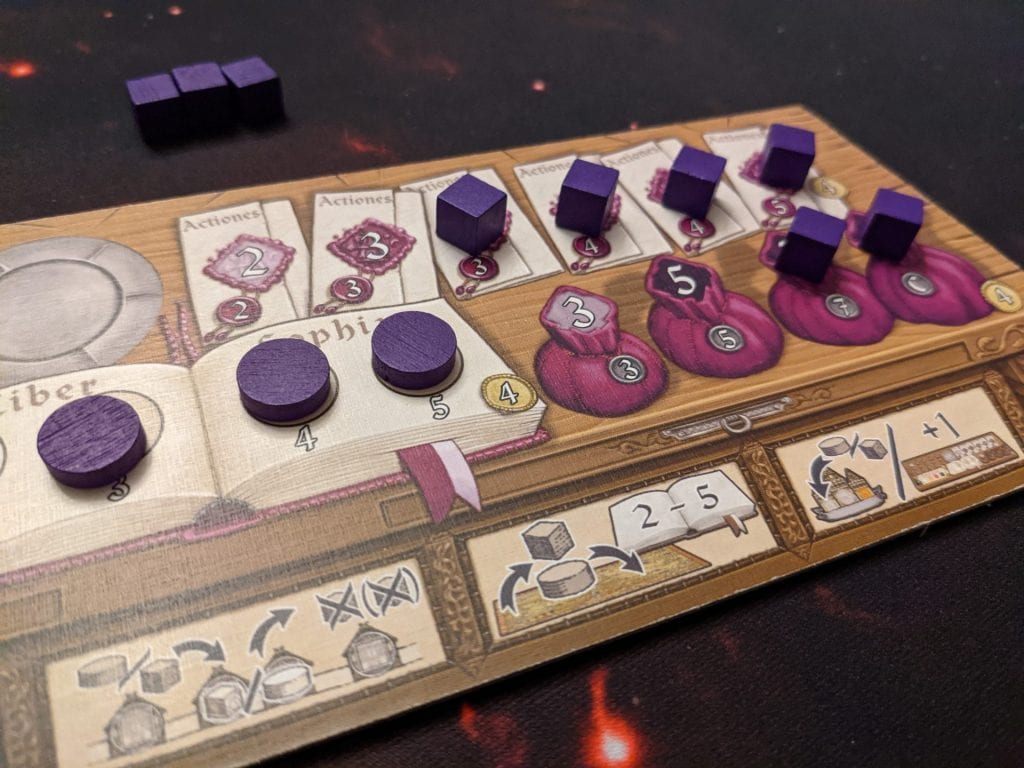
If you can find it, buy the Big Box now!
I love Hansa Teutonica and everyone in my network who has played it loves it too. I think my favorite part of the entire game is the tiebreaker rule. I am critical of many newer games which have tiebreakers that don’t thematically or procedurally make sense, but in Hansa Teutonica, a game of clever efficiency, the tiebreaker is beautiful:
Whoever has developed their “Actions” ability the least wins. In our second game, the winner won a 52-points-all tiebreaker because he was only taking three actions per turn, versus a rival who was taking four actions per turn. Nothing silly like most remaining pieces of wood or whoever countered the most public events…efficiency, plain and simple.
HANSAAAAAA!!!!
(We love Hansa Teutonica so much that it found a home on our very first Board Game Step Ladder article.)


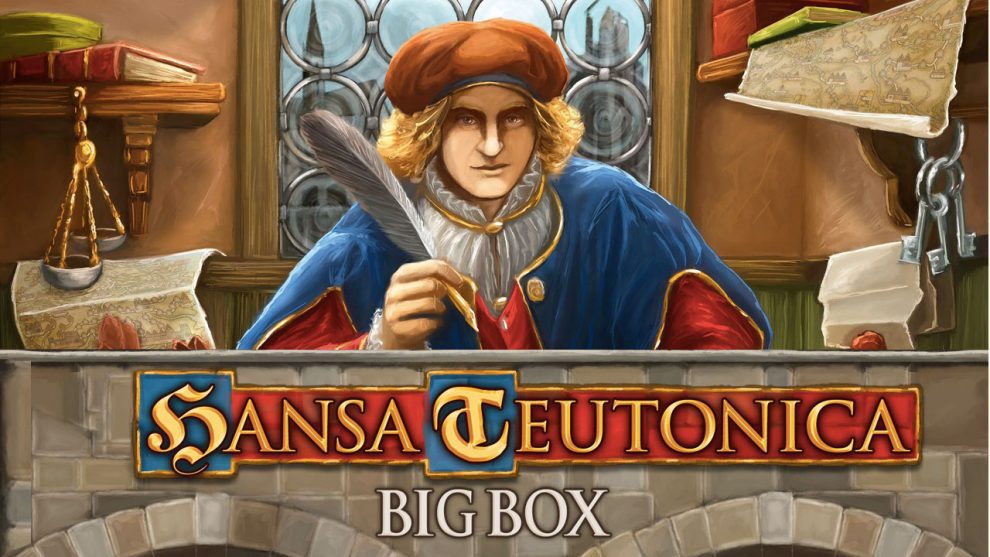
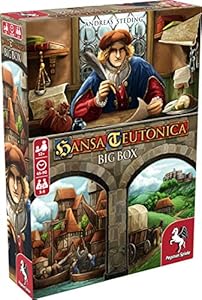


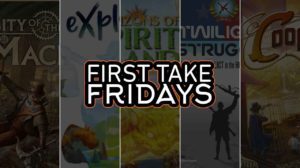





If you’re not thinking about what other players are doing in Roll for the Galaxy, you aren’t playing efficiently! There are lots of MPS games out there, but RftG isn’t one of them!
I just got Hansa Teutonica. Looking forward to playing soon!